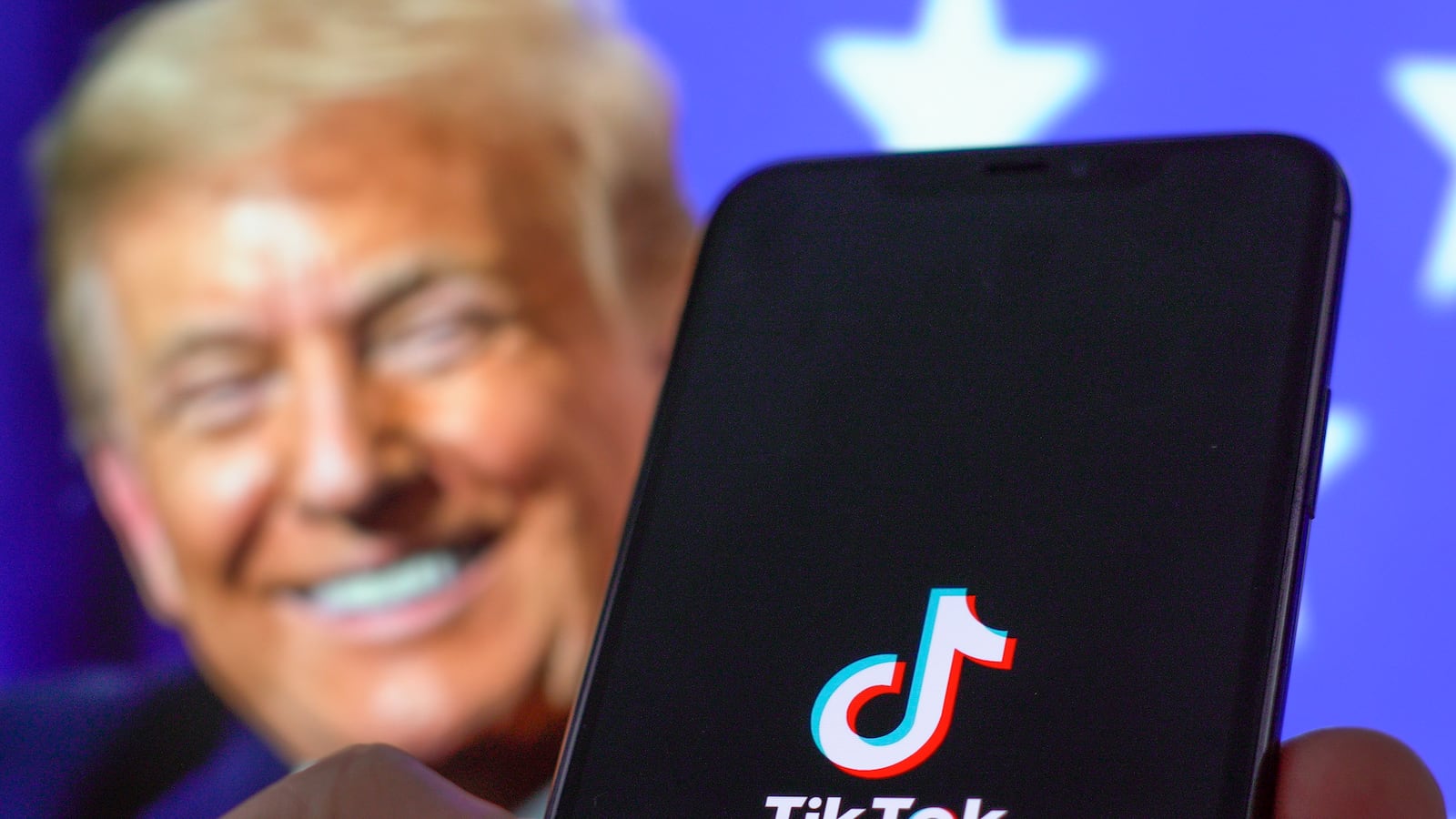Ranting comedian Alex Pearlman; A.B. Burns-Tucker, an influencer who talks politics in African-American Vernacular English; Harry Sisson, a 21-year-old Biden stan.
These are some of the online names one leading digital journalist predicted Gen Z Americans will listen to about the first presidential debate between President Joe Biden and former President Donald Trump, in Georgia Thursday night.
V Spehar, a digital journalist who created for Under The Desk News, which has garnered more than 3 million followers on TikTok with short-form recaps, said creators like Pearlman, Burns-Tucker, Sisson and other influencers would likely provide a bevy of live reacts and recaps.
“It's just all these different types of people who, you know, make that community feel seen, and then they trust them,” Spehar told The Daily Beast.
When Biden and Trump are in full flow on the debate stage, Gen Z won’t exactly be huddled around their screens like it’s a Netflix premiere.
The rematch is more like a rerun, and young people just aren’t into it. The share of the TV audience made up of young people fell during the 2020 debate and polling this month found that nearly half of Gen Z thinks neither of the 2024 candidates, who are older than many of their grandparents, understands their needs.
Voters under 28 don’t want to watch the same old moderators grill the same tired candidates parked behind the same stuffy podiums.
Spehar said: “It is hard to get people interested in tuning into something that they think is going to be a waste of their time. Trust in the media and trust in politics is at an all-time low, so getting someone to tune into a standard media event about politics is going to be very difficult.”
Link Lauren, a political commentator in his mid-20s who describes himself as “an independent thinker” with views “more conservative by today’s standards,” also emphasized the importance of making the debate grabby for younger audiences.
“People want to be entertained by the debates,” Lauren said. “I think attention is the hottest commodity in politics right now. Attention and truth.”
Lauren, who helped craft independent presidential candidate Robert F. Kennedy Jr.’s TikTok presence before leaving the campaign, added that he hasn’t heard peers talk much about the debate. He’s planning a debate live stream as well as a full recap on TikTok before bringing a Gen Z perspective to more traditional media Friday morning.
Increasingly, creators like Spehar and Lauren are shaping Gen Z’s politics. A new study by a Google subsidiary found that for news, Gen Z is increasingly turning to influencers and the wisdom of the crowd. Members are prone to scroll straight to comments sections, seeking their information pre-processed, in a feel-good fashion.
Who can blame them? It’s not like politicians have made them feel very good.
Antonio Arellano, vice president of communications at Next Gen America, the largest U.S. youth voter organization, said as much during a phone interview from the South Lawn of the White House.
“The reality is that nobody's really enthusiastic or excited about the top of the ticket,” Arellano said. “They want to hear about proposals about the issues that matter to them.”
Recent polls show that the issue that matters most to Gen Z is the economy. With prices at a record high, many young people worry they’ll never own a home. And they hear too little empathy and too few satisfactory solutions from candidates who want their votes.
“Something that I'm finding just being out here in the field with young people, is there is a shift in because they don't feel seen and heard,” Spehar said. “They are no longer reporting on or reacting to what content is being put out by politicians, and instead are creating content at politicians.”
In a recent survey, Americans said they were more likely to view clips from the debate than to watch it live. That’s likely even more true of Gen Z.
“Young people are 1,000 percent invested, and recognize that the outcome of this election will impact them directly,” Arellano said.
“Now, whether they'll be tuning in to the live broadcast debate is a different question. We recognize that Gen Z is a digital generation that has been prioritizing consuming their information online, and so what I think will happen is Gen Z will definitely consume the recaps of the highlights from tomorrow's night's debate online.”
During the first debate in 2020, young people made up the smallest share of the TV audience. Gen Z watches way less TV than other adults and does not shell out for all the channels as their parents did. (As Spehar put it, “Cable? In this economy?!”)
Instead, they’ll be seeing clips on YouTube, X, and podcasts, and even using the C-SPAN livestream, which Spehar said is often clipped on TikTok.
![Joe Biden on an iPhone.]](https://www.thedailybeast.com/resizer/v2/K72YWKHHT5L5BL6NJQNGLUEQWA.jpg?auth=2bb0001bc8971e0321329af7226bfb5fd2cddf27ac220c2f076a9df49af124c5&width=800&height=533)
X, formerly known as Twitter, is also a key platform for reaching young viewers.
Samuel Corum/Getty ImagesUltimately, even if Gen Z isn’t really looking forward to the debate, content from it could be what finally snaps them into political reality.
“We've been talking about this hypothetical rematch for so long, and this debate makes it real,” said Arellano. “This debate lets people know, unfortunately, whether you agree with it or not, these are your two choices.”
Lauren agreed: “I think it will bring a lot of eyeballs to this election cycle, especially from people who've said, ‘I'm not interested, I'm sick of it, I'm tired of this, this feels like a do-over of 2020.’”
“I think there will be people who tune in, whether they like it or not. People will see clips on Facebook, Instagram, X, TikTok. They'll see it on the morning shows. They'll hear it in the car on the way to work the next morning. It'll be inescapable.”





